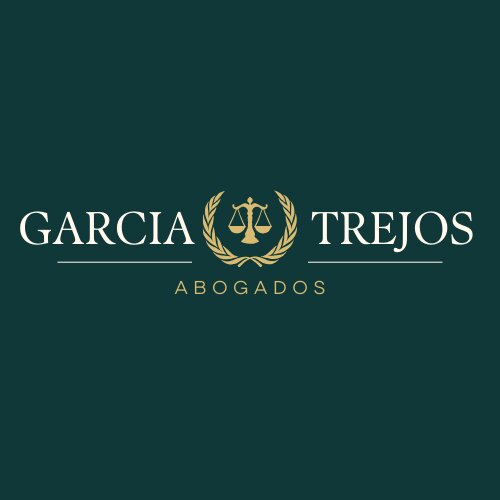Best Marriage Lawyers in Panama
Share your needs with us, get contacted by law firms.
Free. Takes 2 min.
Free Guide to Hiring a Family Lawyer
Or refine your search by selecting a city:
List of the best lawyers in Panama
About Marriage Law in Panama
Marriage in Panama is a legally recognized union between two individuals that is governed by specific regulations and laws. The legal framework for marriage is primarily outlined in Panama's Family Code, which establishes the rights and obligations of spouses. Marriage can be civil or religious, but a civil marriage is required for the recognition of legal rights. Panama's marriage laws ensure that both partners have equal rights and responsibilities in the union, covering aspects such as property rights, inheritance, and parental responsibilities.
Why You May Need a Lawyer
While marriage might seem straightforward, there are several scenarios where legal assistance may be required. Here are some common situations:
- When drafting a prenuptial or postnuptial agreement, to ensure it is legally binding and protects both parties' rights.
- If you are a foreigner marrying a Panamanian citizen, to understand residency implications and to ensure compliance with immigration laws.
- In the event of divorce or separation, to navigate legal processes such as asset division, alimony, or child custody.
- When dealing with complex financial assets, to protect each party’s financial interests.
- If there are legal or familial disputes during the marriage, requiring mediation or representation.
Local Laws Overview
Marriage laws in Panama are comprehensive and include several important aspects:
- Age Requirements: The legal age for marriage is 18 years, though with parental consent, individuals as young as 16 can marry.
- Documentation: Both parties must present valid identification, such as a passport or national ID, birth certificates, and, if applicable, divorce decrees or death certificates of former spouses.
- Civil and Religious Ceremonies: A civil ceremony is mandatory; religious ceremonies may be conducted but must be preceded by a civil marriage.
- Property Regime: Panama allows couples to choose between different property regimes: community property, or separation of property, with the default being community property unless otherwise specified.
- Divorce: Panamanian law provides for both consensual and contentious divorce, with various grounds such as mutual consent, infidelity, or abandonment.
Frequently Asked Questions
What are the requirements to get married in Panama?
Couples must provide identification, birth certificates, and previous marriage dissolution documents if applicable. The couple must also state their intent to marry in front of a registrar and two witnesses.
Can foreigners get married in Panama?
Yes, foreigners can marry in Panama. They must meet the same legal requirements as Panamanian citizens and ensure their home countries recognize the marriage.
Is a prenuptial agreement recognized in Panama?
Yes, prenuptial agreements are recognized as long as they comply with legal formalities and do not contravene public policy or moral principles.
What is the difference between civil and religious marriage in Panama?
Civil marriage is the legal ceremony required by the state to recognize the marriage. A religious ceremony is optional and has no legal standing without the civil ceremony.
How can I get divorced in Panama?
Divorce can be obtained through mutual consent or by proving grounds such as adultery, abandonment, or incompatibility. Legal representation can be helpful in navigating the process.
What happens to our property if we divorce?
Property distribution depends on the marital property regime chosen at the time of marriage. In community property, assets are typically divided equally, whereas in separation of property, each retains their own assets.
Are same-sex marriages recognized in Panama?
Currently, same-sex marriages are not legally recognized in Panama, though there are ongoing discussions and legal challenges regarding their recognition.
Can I change my name after marriage in Panama?
Yes, you can choose to change your name after marriage, but it is not mandatory and must be updated on all your legal documents.
Do we need witnesses for the marriage ceremony?
Yes, Panamanian law requires two witnesses to be present at the civil marriage ceremony.
Is there a waiting period before we can get married?
After submitting the marriage application, there is typically a waiting period of about 10-15 days for processing before the ceremony can occur.
Additional Resources
Here are some resources and organizations that can be helpful if you need more information or assistance:
- Panamanian Civil Registry: For official processes related to marriage registration.
- Panama Bar Association: To find qualified family law attorneys who can provide legal assistance.
- Family Courts: For issues related to marriage disputes, divorces, and settlement proceedings.
- Ministry of Government: Offers guidance on various family-related legal issues.
Next Steps
If you are seeking legal assistance for marriage-related issues in Panama, consider taking the following steps:
- Consult with a qualified family law attorney to understand your rights and obligations.
- Gather all necessary documentation pertinent to your marital situation, including identification and any legal agreements.
- Visit the nearest Civil Registry to understand procedural requirements and file the necessary paperwork.
- Attend a legal consultation if you are considering a prenuptial or postnuptial agreement.
- Stay informed about any changes in marriage laws especially if representing a non-traditional or international marriage.
Lawzana helps you find the best lawyers and law firms in Panama through a curated and pre-screened list of qualified legal professionals. Our platform offers rankings and detailed profiles of attorneys and law firms, allowing you to compare based on practice areas, including Marriage, experience, and client feedback.
Each profile includes a description of the firm's areas of practice, client reviews, team members and partners, year of establishment, spoken languages, office locations, contact information, social media presence, and any published articles or resources. Most firms on our platform speak English and are experienced in both local and international legal matters.
Get a quote from top-rated law firms in Panama — quickly, securely, and without unnecessary hassle.
Disclaimer:
The information provided on this page is for general informational purposes only and does not constitute legal advice. While we strive to ensure the accuracy and relevance of the content, legal information may change over time, and interpretations of the law can vary. You should always consult with a qualified legal professional for advice specific to your situation.
We disclaim all liability for actions taken or not taken based on the content of this page. If you believe any information is incorrect or outdated, please contact us, and we will review and update it where appropriate.
Browse marriage law firms by city in Panama
Refine your search by selecting a city.















